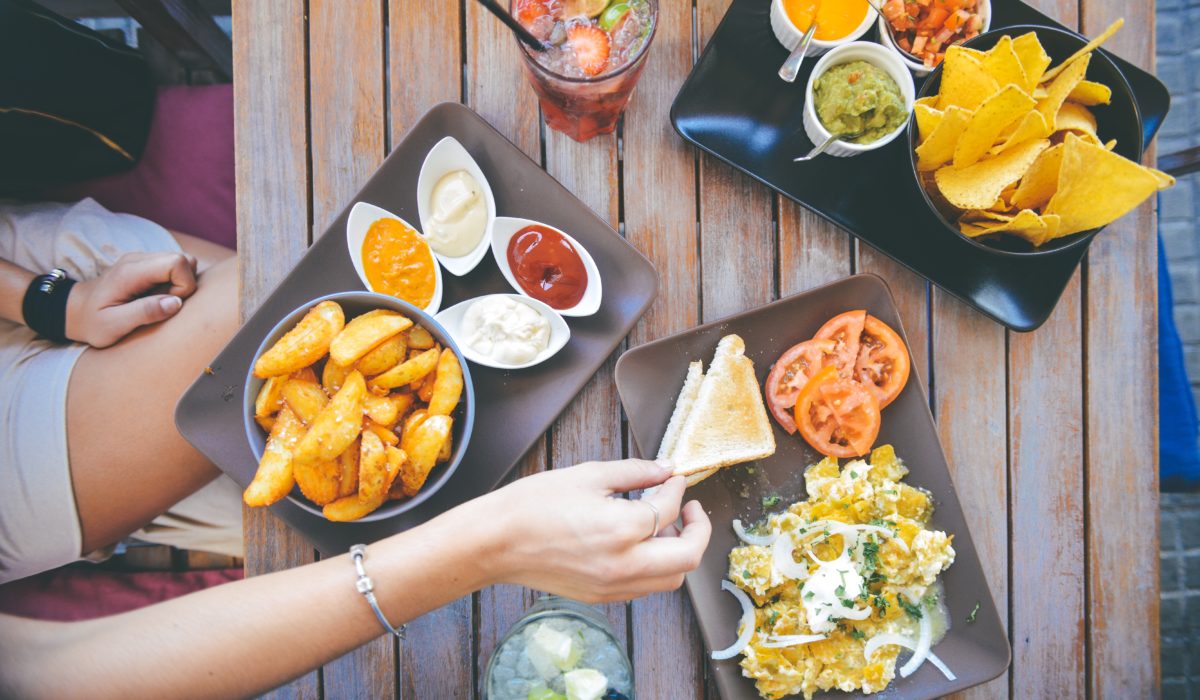
One of the most common questions I get from my clients concerns nutrition and healthy eating… as well as wondering how even mild levels of depression and/or anxiety fuels unhealthy food choices. So FIRST I am not in any way a nutrition expert, so any truly serious/health related concerns you may have need to be directed to your doctor or a certified nutrition expert.
But I do weigh in on the “psychology” of food and eating….and sharing some healthy eating concepts from my own reading and research.
First, the original question: THINKING you are hungry typically has very little connection to actual “physical/body hunger.” Meaning? Most of us are deeply programmed to think about food. All most of us need is a “visual” of food to stimulate cravings– making commercials, photos on line, even signs seen while driving can jump start thoughts and cravings about food — even if you’ve recently eaten. Smells can be even more powerful….and even HEARING about food in conversations. So that might make it obvious that your brain is PROGRAMMED to “want to eat” and consequently to respond to THINKING ABOUT HUNGER.
If you are struggling with managing good and healthy nutritional choices, understanding THOUGHT HUNGER could be a powerful tool. It’s pretty basic….thinking you are hungry, thinking it’s TiME to eat something, THINKING you want or need to eat typically has zero connection to your body truly wanting or needing food. What to do?
-start to pay attention to thoughts about hunger…when do you have them? What specific foods do you THINK about? Make a list.
-to teach yourself awareness, pause on your way TO EAT and pay attention to what you are thinking …. if you can delay grabbing something to eat by even 5 minutes, you can learn: AM I ACTUALLY hungry? Or am I simply THINKING about food? That 5 minute pause to listen to the voice in your head can eventually make you step away from food your body just does not need and/or food that’s an unhealthy choice
-when you resist or step away from THOUGHT HUNGER you are also learning to trust real hunger signals from your body. And THAT IS POWERFUL.
-learn to pay attention to the kinds of food you THINK you are hungry for….typically carbs and sugar will top most lists. Then see if you can learn to substitute good protein at times like that.
-and ask THIS question: do I ever (or how often) do I decide to eat because I’m bored or am just looking for something TO DO? That’s a good question to ask on your way to the frig or a drive by window! AND finally, do I eat when I’m either anxious or depressed?
Practicing these ideas teaches most of us to understand when we are ACTUALLY hungry vs our conditioned brain telling us we are! And try not to under estimate the power in that knowledge. And try writing about what you learn about your thoughts and feelings. It does help to see what’s in your head and heart on paper!
An additional way to learn more about the difference is to consider practicing fasting. Most people who shy away from the idea HAVE needed to fast for a minimum of 8/10 plus hours to have blood work done. So imagine that if you managed 8, you can manage 10 to 15 and perhaps even 24 hours of fasting. What does that accomplish? If you do it wisely with good factual information about the process, you learn even more about when you are truly hungry vs when your programmed brain misdirects you to food that typically isn’t what is good for you, let alone what your body needs nutritionally. DO NOT ATTEMPT A FAST without proper direction/information. But there’s plenty of research out there on the benefits as well as the how to…..
Finally, put the idea of the difference between MIND AND BODY HUNGER on the list of things you need to learn to be as healthy as you possibly can be…. you will feel better; be less likely to go on unhealthy eating binges, misdirected dieting, or simply poor nutritional habits. Put your self care at the top of your “to do” list remembering that the more you put your self care/needs FIRST, the more you multiply the energy and motivation to do the considerate and caring things you want to do for others! You deserve to feel as good as you can. And as always, if you have questions, feel free to contact me.